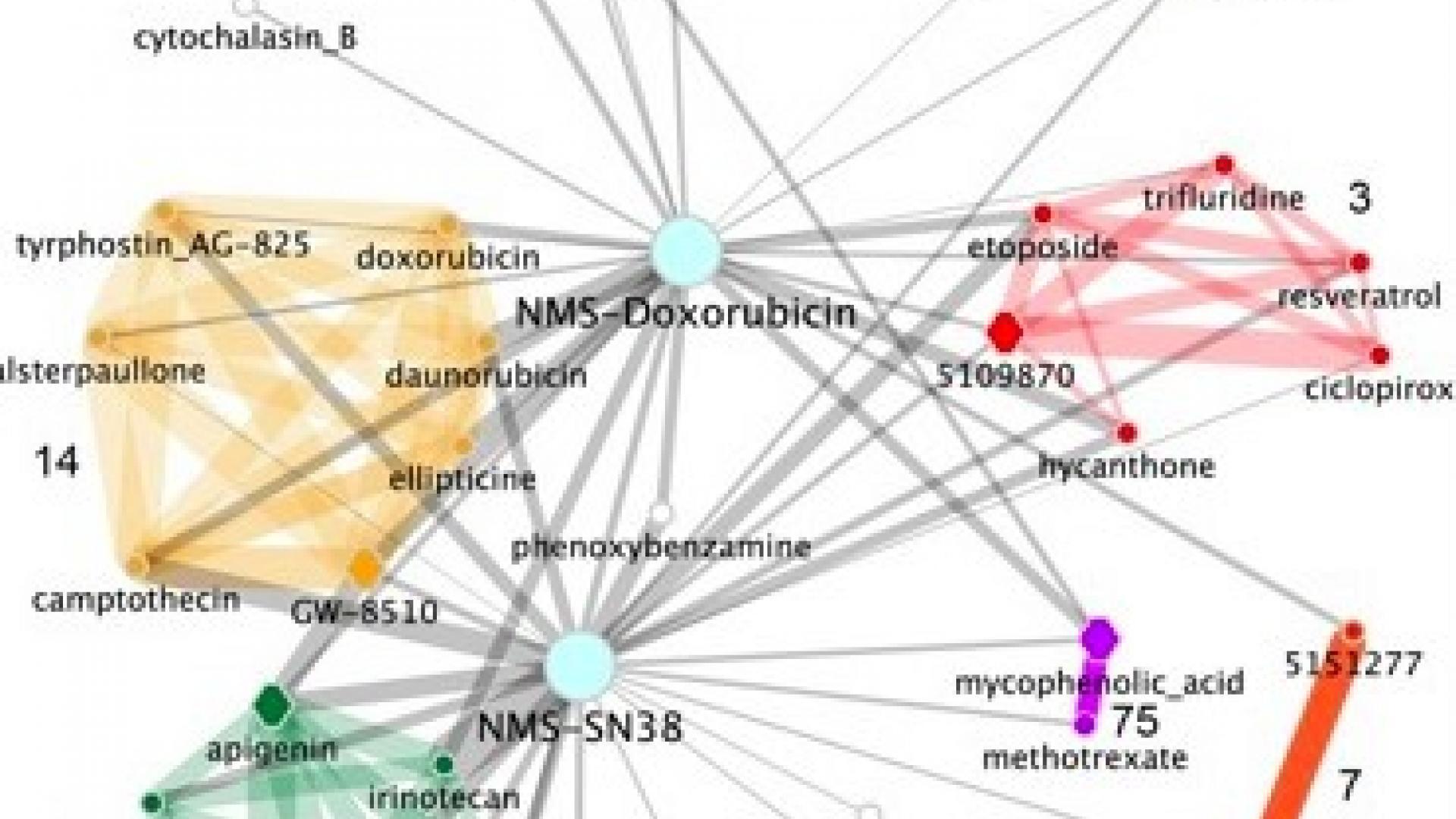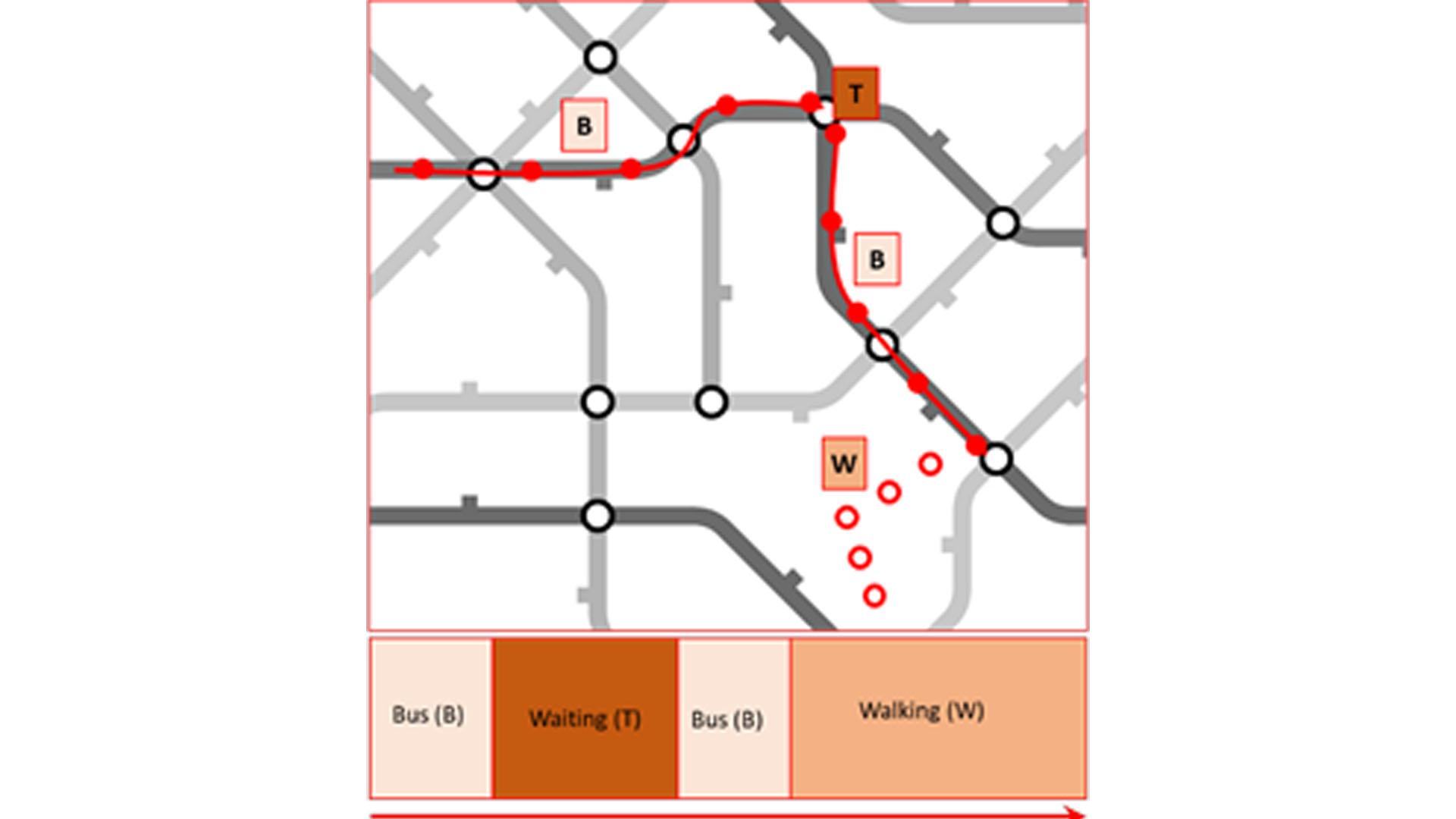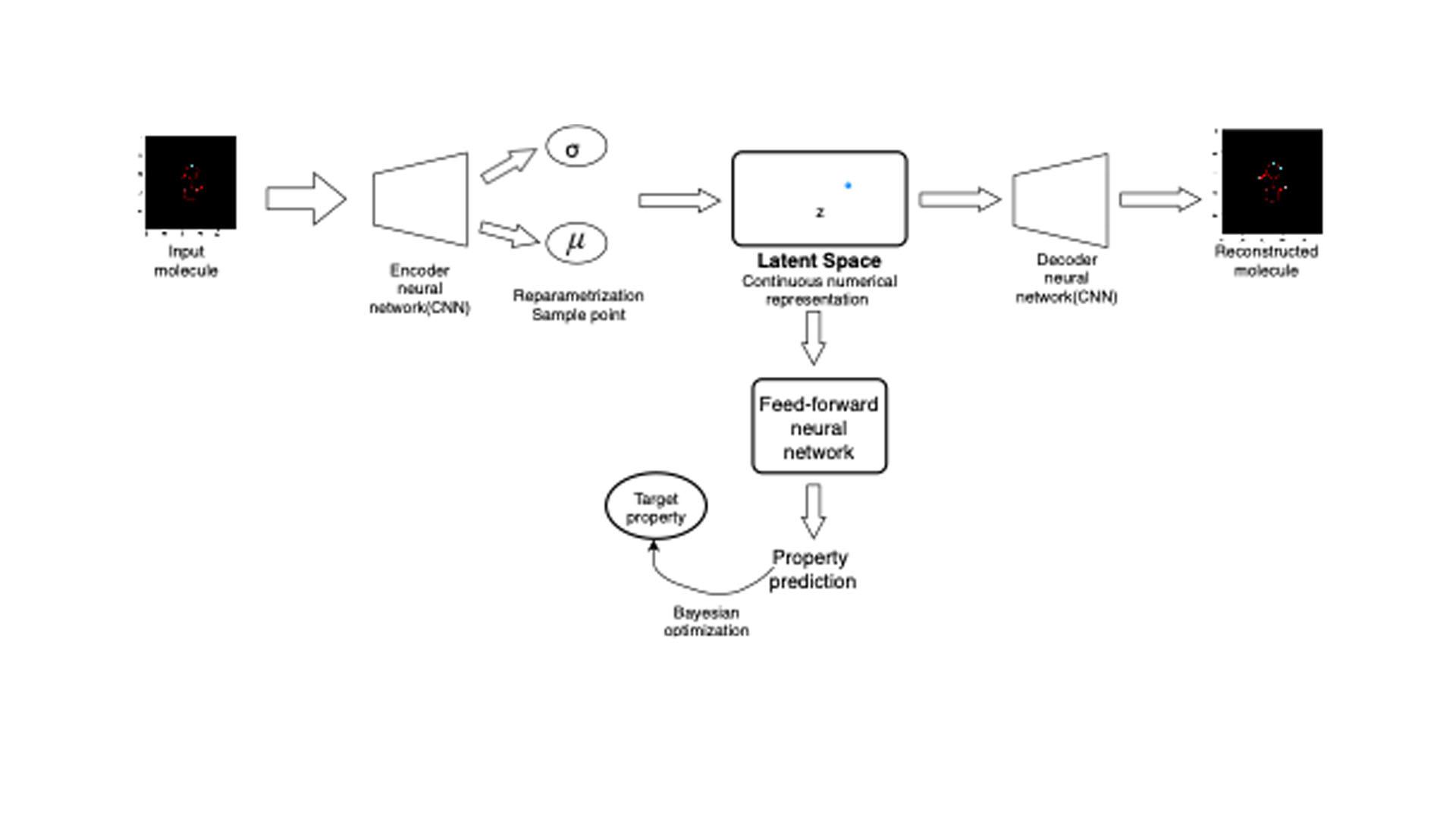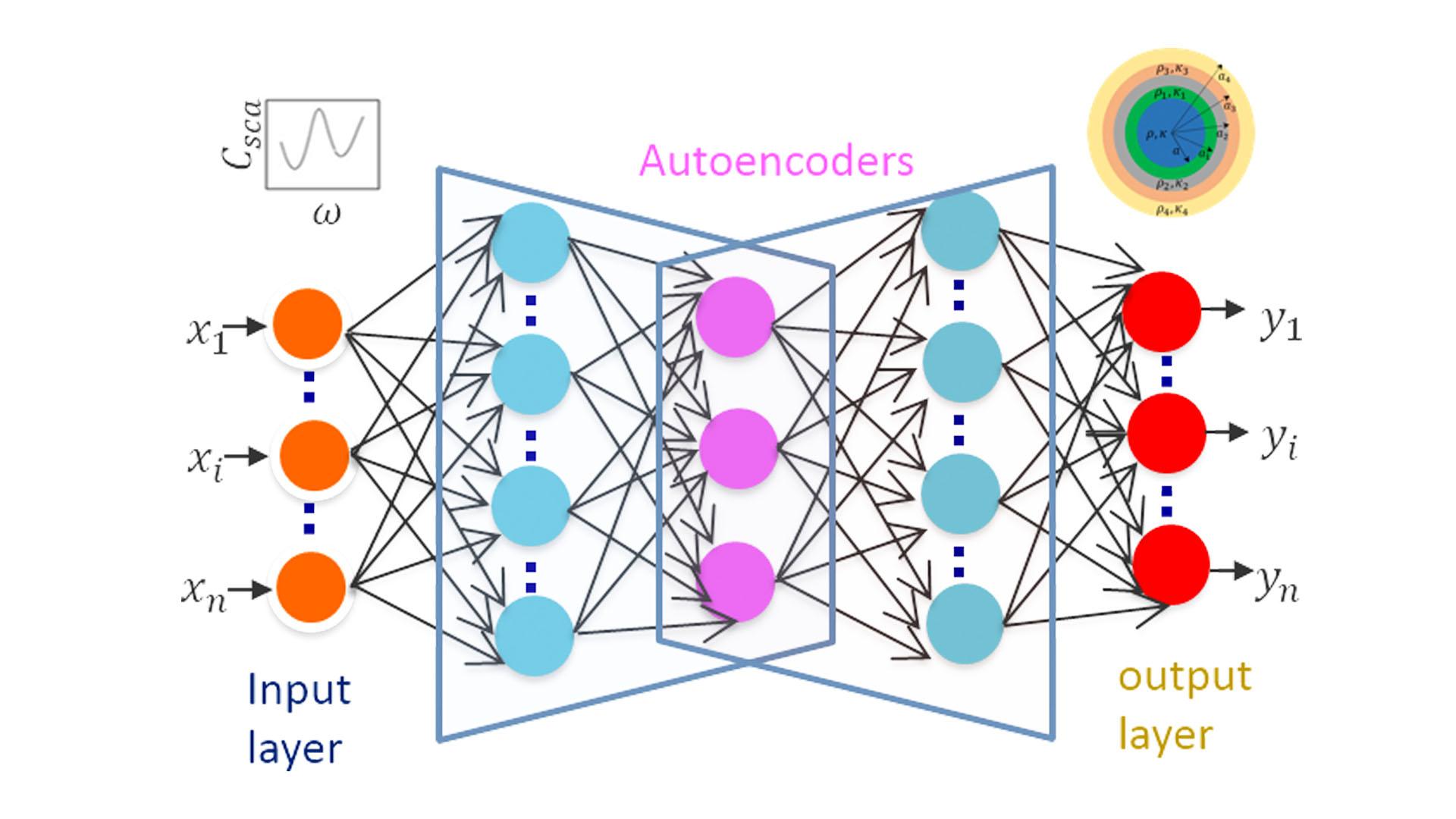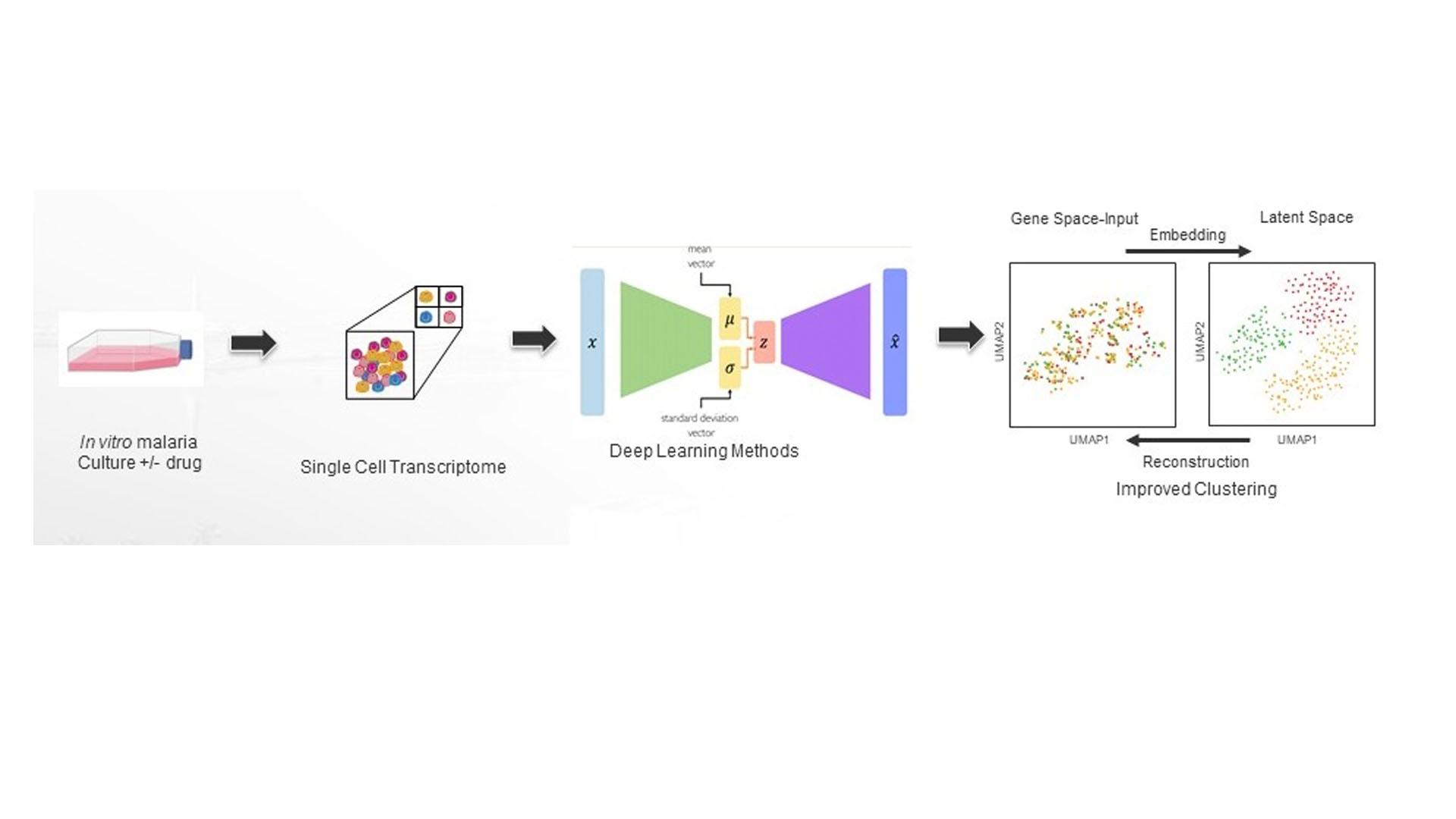Novel molecules and materials are traditionally developed based on experimental screening or a priori theoretical calculations relating molecular structure with desired properties. However, these approaches are expensive, and shortening the timescale of discovery requires a rapid screening methodology.
Aim: to develop generative deep learning models to offer on-demand optical functionalities of non-Hermitian structures
Malaria is a global health burden and drug resistance is major hurdle preventing early effective treatment. Malaria parasites show considerable heterogeneity in the gene expression programs when exposed to the most effective antimalarial drug Artemisinin. The cellular mechanisms of Artemisinin tolerance are not fully understood.
